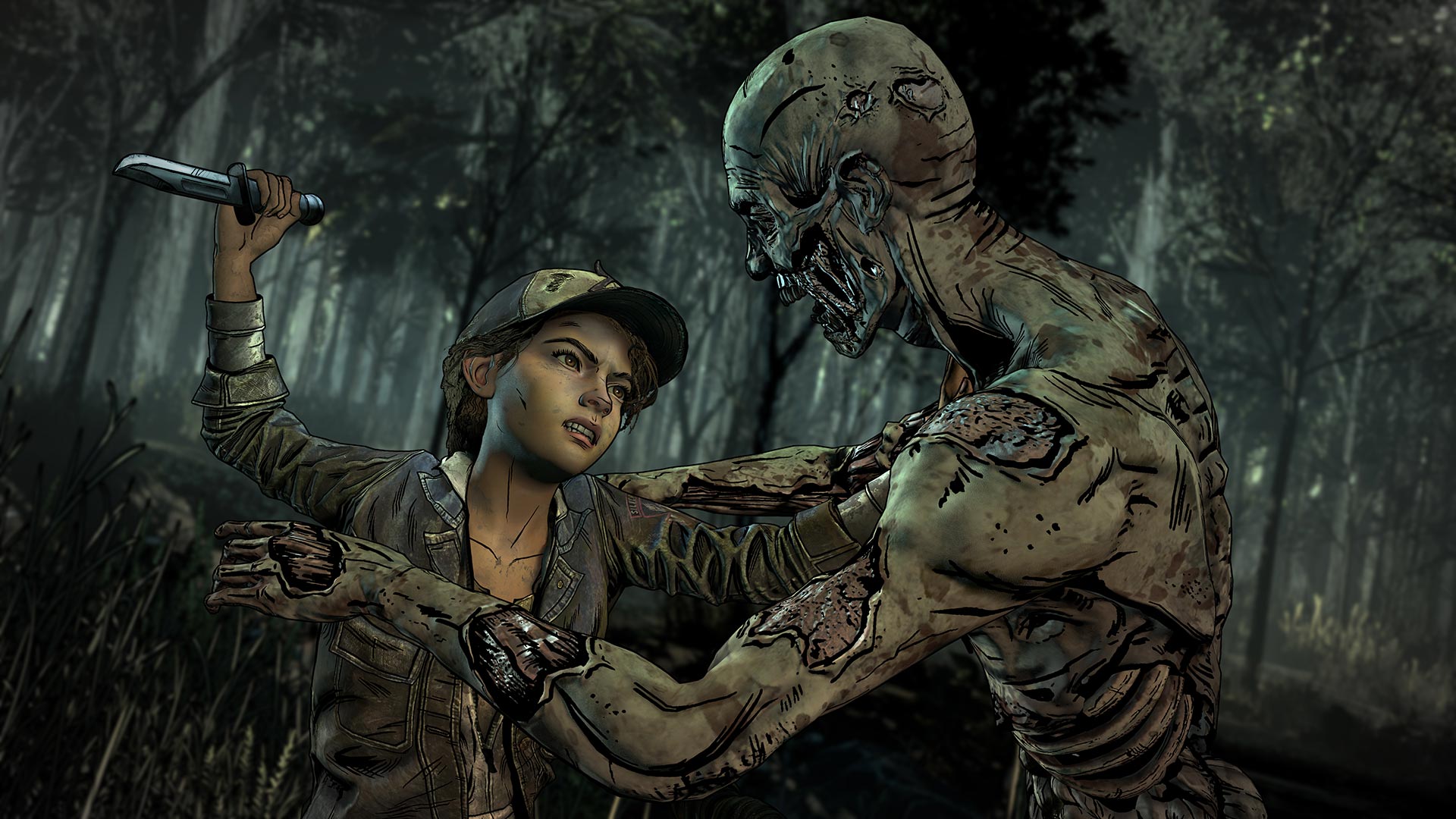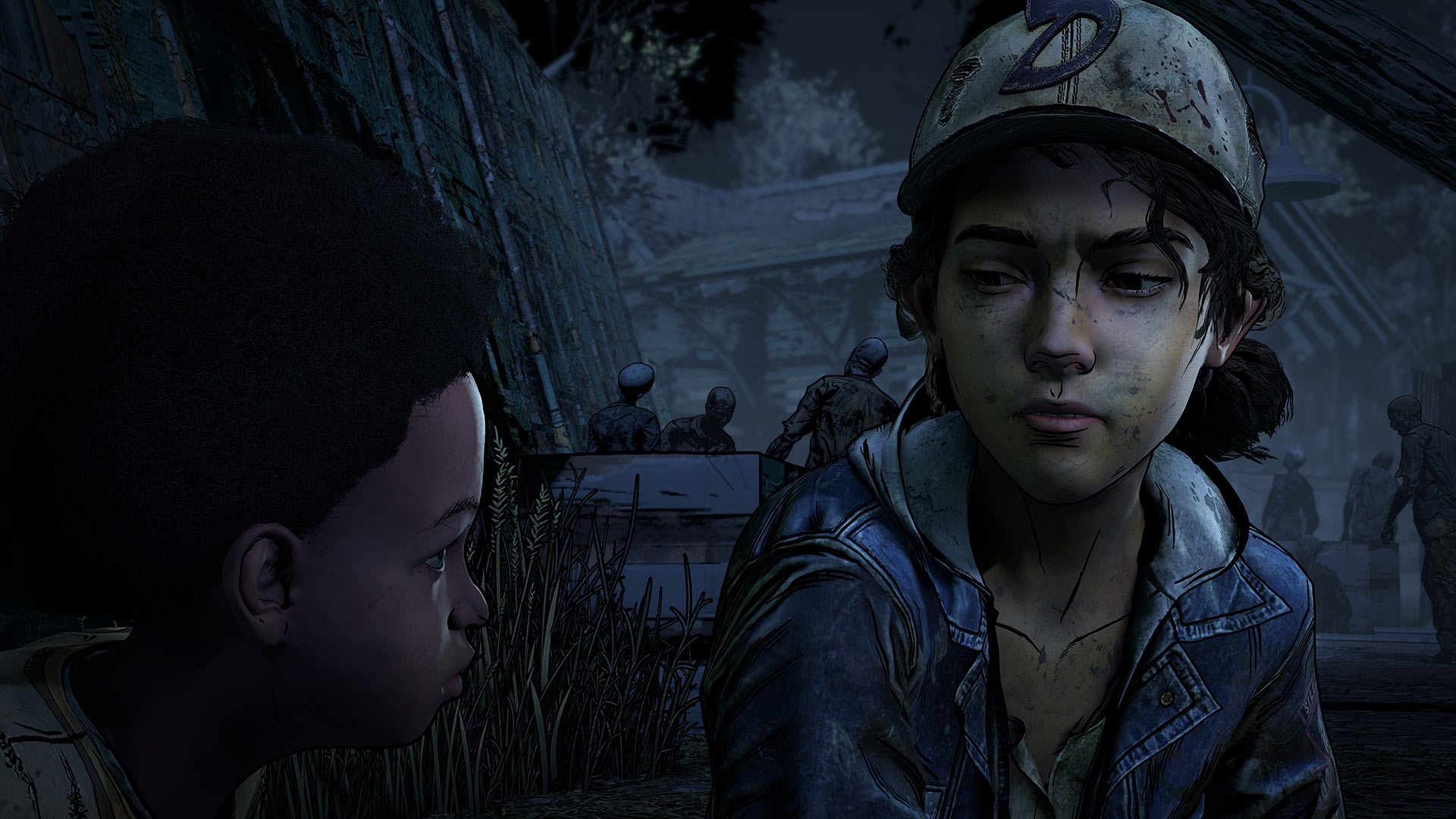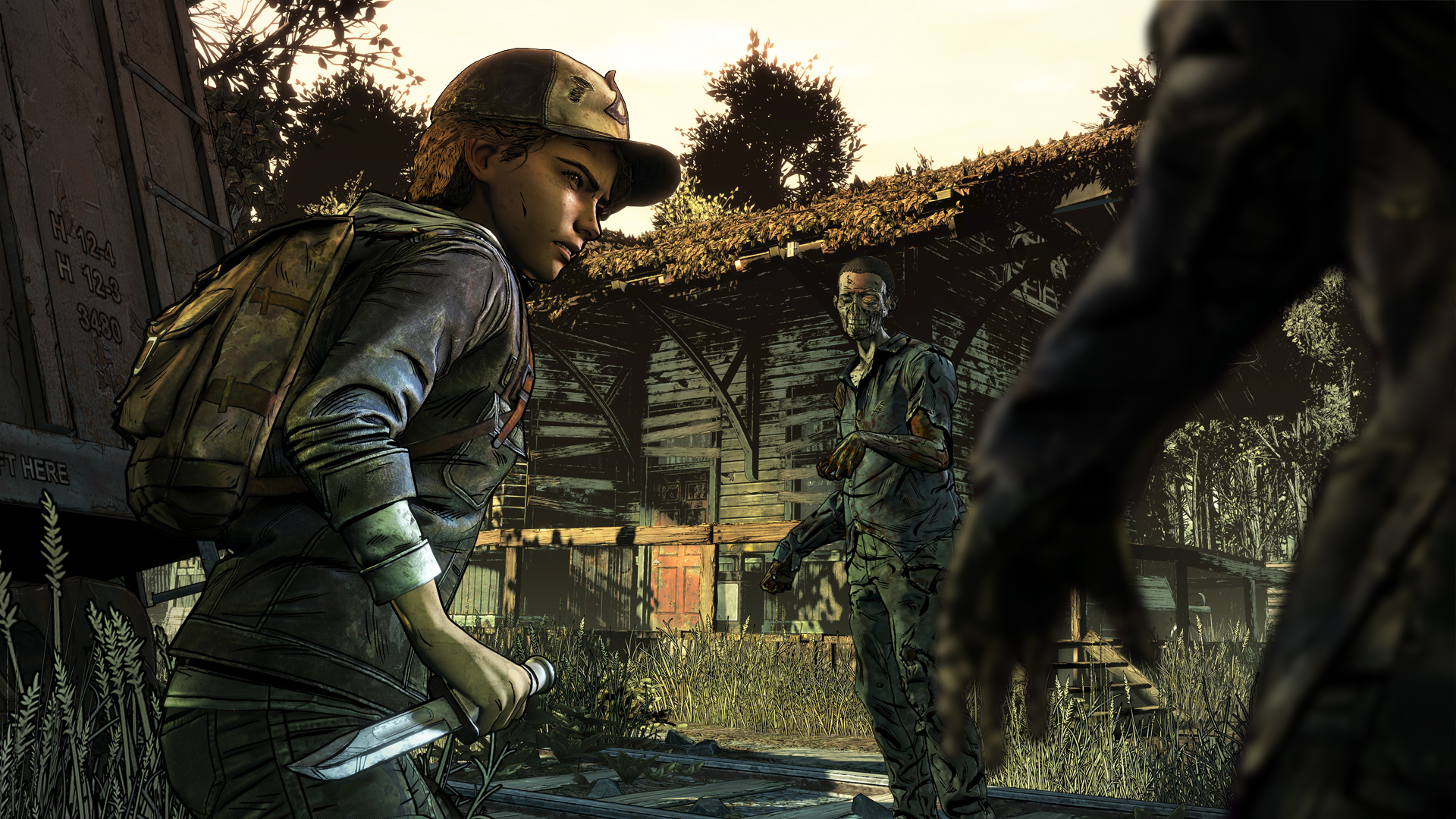How The Walking Dead's final season is changing the rules
Responsibility for the next generation is on Clem now.

Richard Cobbett is a long-time PC Gamer writer and narrative designer who has contributed to multiple games, including the upcoming Nighthawks.
With The Walking Dead: The Final Season, Telltale has finally deployed its secret weapon: Time. Though the first episode features one of the most gruelling scenes now-teenage Clementine has had to face since performing surgery on her own arm, it's really the five years building up to it that gives it power. We’ve seen and guided Clem through the worst that the zombie apocalypse has to offer, almost in real-time, albeit taken in chunks. The little girl who once awkwardly told her protector, Lee, that swearing is naughty is now herself being told that by her own charge, and responsibility for his safety now falls squarely on her still small shoulders.
It’s an interesting dynamic for many reasons, not least that we rarely see maternal relationships in these games. From The Last Of Us to The Walking Dead to Heavy Rain to Bioshock 2 to God of War, the focus has typically been on fatherhood—cued, of course, by many members of the gaming industry in creative direction roles raising kids and seeing their world change accordingly. However, mothers and older sisters and other female caretaker roles are depressingly rare. When mothers are a factor, and not conveniently dead when the plot kicks off, they tend to be obstacles and villains instead—Sofia Lamb, turning her daughter into a weapon, Ethan’s wife in Heavy Rain being completely sidelined by the plot except for turning the police against him, and so on.

As much as there’s the option to be a complete prick, it’s a fair bet that most players want to finish the series proud of Clem and her actions.
Clem’s role in The Walking Dead is an interesting mix of maternal figure and cool big sister—old enough to have brought young AJ up mostly on her own, but still very much a child. This episode plays off that beautifully as the two of them find themselves in a school of fellow children trying to make it on their own in the apocalypse without it going all Lord of the Flies. From the start, and much like Bioshock 2, the Final Season lays its cards on the table—that much as The Walking Dead wasn’t ultimately about Lee’s story as his legacy in the form of the Clementine who would outlive him, this one is an examination of how the girl that Clementine became will affect her own next generation in the form of AJ. Not for nothing does one of the early decision captions read “AJ is always listening” rather than the more common “AJ will remember that.”
What’s really promising about this series is that approaching it from this angle hugely opens up the scope for interesting moral decisions and outcomes. Again like Bioshock 2, which had your adoptive daughter Eleanor learn by your example rather than your words, AJ isn’t privy to your internal thoughts. He only sees what you do, and if what you do is say nice words and then backstab and murder your way to safety, it’s clearly going to be the latter that he takes onboard. More importantly, because it’s not just our decisions but our Clementine setting the pattern, there’s a sense of guilt and urgency behind them that there wouldn’t be if this was the first game—indeed, that there wasn’t back in the first series. As much as there’s the option to be a complete prick, it’s a fair bet that most players want to finish the series proud of Clem and her actions.

There are of course issues here, not least that Telltale’s much talked about branching stories and decisions tend to be smoke and mirrors. That’s not necessarily a problem as long as they support the story instead of feeling like they’re taking over it. The recent Batman: The Enemy Within, for instance, always ended up in the same place, with Batman facing off against Joker. However, the path to that point, and the responsiveness of the relationship between Bruce Wayne and “John Doe” had enough flexibility to feel real—to convey the sense that, just maybe, you had the power to save Joker’s soul, and then when all was done, that his fall was a tragedy.
The Final Season is, likewise, almost certainly heading towards a fixed conclusion. It’s unlikely to be very cheery. But with the focus on Clem and AJ there’s more than enough scope to still bend that path around decisions and choice, and offer control over how they reach their destiny, and who they are when it finally arrives. That can be enough. The best decisions in the first series after all had no direct effect—who to feed when the survivors were starving, whether or not Clem would shoot Lee before he became a zombie, and what his final instruction was to her. Charted, no, they don’t matter. Emotionally however, they completely alter the nature of the story, and it’s still a huge frustration that the first series didn’t fully commit by ending on a cut-to-black as Lee’s part in the story ended, him chained to a radiator, having to simply hope he’d done enough.
If this Final Season can convey that kind of emotional payoff, it won’t necessarily matter how much branching there is and how many endings. We’re talking the difference between picking a story from the developers' deck of cards, and simply experiencing your story. After so much time with Clementine, even looking up the alternatives will likely diminish the result—provided that Telltale can stick the landing in three months time. Fingers crossed they can, and that after ending this tale on a high, it will indeed be the Final Season, and not just for our darling Clementine.
The biggest gaming news, reviews and hardware deals
Keep up to date with the most important stories and the best deals, as picked by the PC Gamer team.

